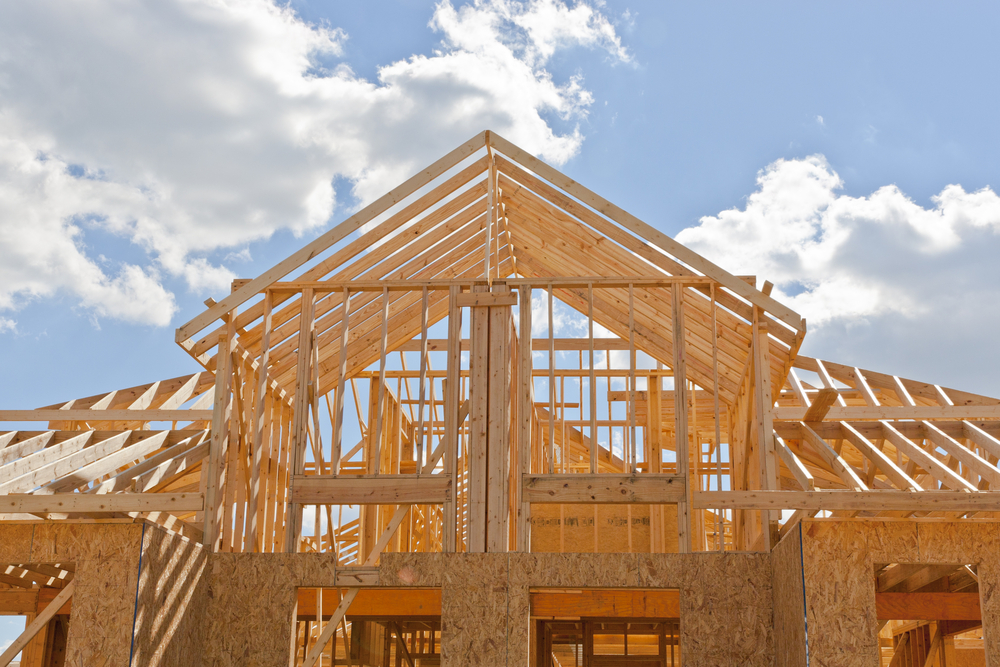$1.9T COVID-19 relief package includes billions for capital projects

The construction industry will benefit from many of the provisions in the rescue bill.

In a 220-211 vote, the House of Representatives passed the $1.9 trillion COVID-19 relief bill, officially known as the American Rescue Plan Act of 2021, and presented the legislation to President Joe Biden on Wednesday of last week.
The package contains plenty of provisions that will benefit the country in general, such as $1,400 stimulus checks to qualifying individuals, but there are also some that should help out the construction economy.
For instance, the Senate’s version of the bill added in $10 billion for a “Coronavirus Capital Projects Fund,” that will pay for state, tribal government and territorial projects that “carry out critical capital projects directly enabling work, education and health monitoring, including remote options,” in response to the COVID-19 public health emergency. Each state is slated to receive $100 million out of this new projects fund, which they can use for construction and other projects.
All 50 states, Puerto Rico and the District of Columbia, which are not obligated to spend the money on construction specifically, each will receive $100 million out of this new projects fund, and tribes will split another $100 million.
The remainder will be allocated as follows:
- 50% of the money will be allocated to states based on population.
- 25% based on rural population.
- 25% based on how much of a state’s population has household income 150% below the poverty line.
The legislation also gives states another $219.8 billion and counties and cities $120.2 billion in coronavirus recovery funds, some of which could also be used for construction projects.
Construction-related funding provisions are scattered throughout the legislation and include:
- $125.8 billion in emergency elementary and secondary school relief aid, some of which may be used for facility repairs and improvements.
- $30.5 billion for various Federal Transit Administration grants.
- $25 billion in restaurant revitalization funds, some of which can be used for the construction of outdoor seating areas.
- $8.5 billion to healthcare providers, which can spend some of that money on the construction of temporary structures and retrofits.
- $1.8 billion for novel coronavirus genomic sequencing and surveillance, which includes construction, alteration and renovation of facilities.
- $600 million to tribal governments, which includes construction, alteration or renovation of healthcare facilities.
Other provisions
There are also general business provisions in the relief package that aren’t construction-specific but are welcome nonetheless.
For example, the bill extends the employee retention credit program, which refunds up to $10,000 per employee of employer-paid payroll taxes, into 2021, a move that Jimmy Christianson, vice president of government relations for the Associated General Contractors of America, praised in a recent letter to lawmakers shared with Construction Dive.
Christianson also acknowledged the relief that the bill would provide to participants, contributors and retirees attached to financially compromised multi-employer pension plans. Small businesses work hard to provide good benefits for their employees and called the concession to these plans a costly bailout, said Peter Comstock, senior director of legislative affairs at Associated Builders and Contractors.
One thing that the bill is missing, Comstock said, is COVID-19 liability protection for businesses.
Its member contractors, he said, are adhering to OSHA guidelines, but there is still concern over potential frivolous lawsuits related to the novel coronavirus, something Comstock said ABC would continue to pursue.
Infrastructure up next
Christianson expressed concern that none of the billions allocated to state and local governments are earmarked for direct spending on capital project investment. That spending will be addressed in an infrastructure bill that is expected to be developed and passed in time for FAST Act reauthorization at the end of September, said Comstock.
How much money and what projects Congress will include in that bill is still an unknown, but that will depend on the current administration’s commitment.
“It certainly does depend on how much of a priority [President Joe Biden] makes infrastructure,” Comstock said.
Several construction-related organizations issued statements after the passage of the bill, including North America’s Building Trades Unions and the National Utility Contractors Association.
“This measure will provide additional resources for testing, logistics, vaccine manufacturing and distribution,” said Sean McGarvey, president of NABTU. “It will secure health care coverage, an unemployment extension, needed relief for millions of Americans’ post-retirement security, direct cash support for tens of millions of American families, and badly needed state and local aid.”
Doug Carlson, CEO of NUCA, also praised the act’s passage.
“This legislation recognizes the important role the federal government must play in getting this nation back on its feet,” Carlson said. “This new law will speed up coronavirus vaccine distribution to industry employees and their families. And the new resources this bill directs to the utility construction industry will keep clean water flowing and help build out better fiber-optic broadband systems in thousands of American communities.“
This article was originally written by Kim Slowey and appeared here.


Comment (0)